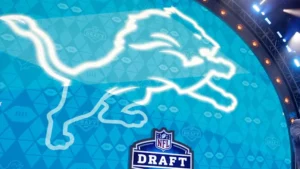
Major League Baseball employs a competitive balance tax (CBT), commonly referred to as the luxury tax, to manage disparities between large-market and small-market teams. While MLB lacks a strict salary cap, the CBT is designed to discourage excessive spending by wealthier teams and to redistribute funds to smaller market clubs. The threshold for the luxury tax in 2024 was set at $237 million, and teams exceeding this limit face penalties based on their overages and repeat offender status.
For a team surpassing the limit for the first year, a 20% tax is applied to the overages. This rate escalates to 30% in the second year and 50% for three or more consecutive years over the threshold. Additional surcharges apply for exceeding the threshold by specific amounts. Teams that are $20 to $40 million over incur a 12% surcharge, while those $40 to $60 million over face a 42.5% surcharge in the first year and 45% in subsequent years. Teams exceeding the threshold by more than $60 million face a 60% surcharge. Additionally, teams exceeding the threshold by $40 million or more face a draft penalty, with their highest pick moved back 10 places unless the pick falls within the top six, in which case the second-highest selection is affected.
The Los Angeles Dodgers, known for their significant payroll investments, led MLB in payroll for the 2024 season with a staggering $353 million. Their CBT overages, amounting to $116 million above the threshold, resulted in a record $103 million luxury tax bill. This penalty surpasses the previous record of approximately $101 million set by the New York Mets. With additional surcharges factored in, the Dodgers’ effective tax rates ranged from 50% to 110%, culminating in a combined payroll and tax expenditure of $456 million. This marks the Dodgers’ fourth consecutive year exceeding the luxury tax threshold and their ninth instance under the Guggenheim Baseball Management Group.
In total, nine MLB teams, including the Dodgers, New York Mets, Yankees, Braves, Rangers, Astros, Phillies, Giants, and Cubs, were subject to luxury tax penalties, collectively contributing over $311 million. Funds collected from the luxury tax are allocated to player benefits and retirement accounts, with the remainder distributed to teams that demonstrate growth in local revenue. This system reflects MLB’s ongoing efforts to balance competitiveness across franchises while enabling high-spending teams to invest heavily in talent.







